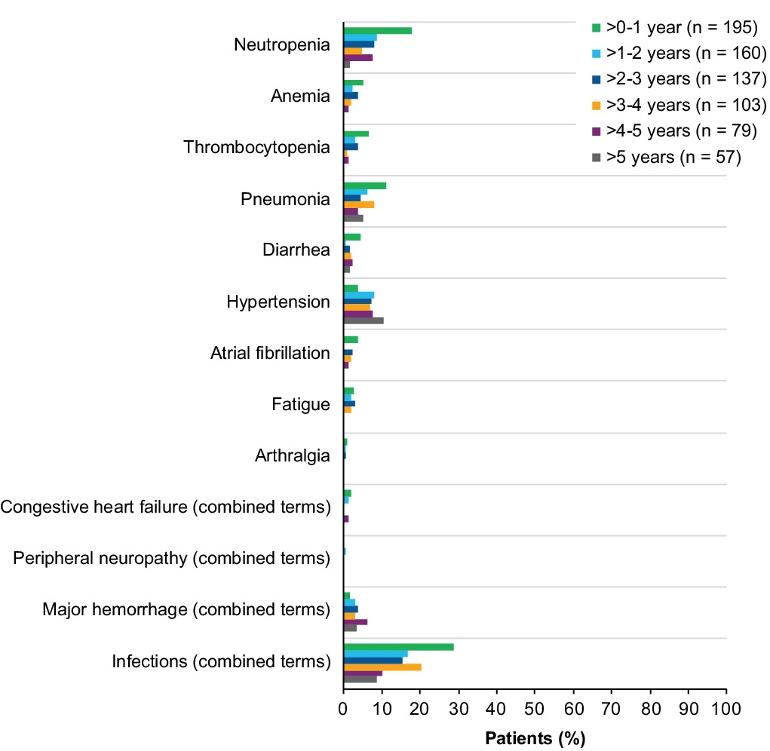An analysis of five U.S. medical claims databases suggests as many as 23% of 5.6 million to 6.6 million presumptive atrial fibrillation cases are undiagnosed, with many undiagnosed patients likely eligible for oral anticoagulant treatment.
- The estimated U.S. prevalence of AF (diagnosed and undiagnosed) in the third quarter of 2015 was 5,628,000 cases, of which 11% were undiagnosed.
healio.com/news/cardiology/...
Regular readers would be aware that one downside of BTKi inhibitors, is the increased risk of developing atrial fibrillation. While that risk is lower with the second generation approved drugs acalabrutinib and zanubrutinib, it's still higher than if you were not taking the drug. Also, while the risk of most adverse events from BTKi treatments reduces over time, including the risk of atrial fibrillation, the risk of developing (treatable) high blood pressure increases (see attached image from the long term 5 year follow-up of ibrutinib treatment). One of the benefits of having CLL, is regular blood tests and medical check-ups, but if you have cardiovascular health issues, a BTKi drug may not be the best treatment choice for you. The above research supports the recommendation of some CLL specialists of arranging a check of your heart health as part of the decision process for your treatment choice.
Neil
